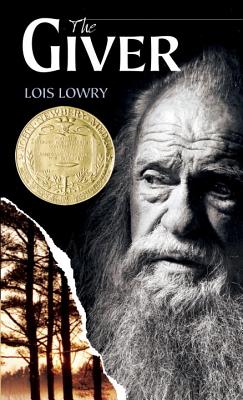As Banned Books Week was a little over a week ago, and I like to do things in my own time, I've decided I would go through my favorite YA books in this typically challenged genre.
1. Fahrenheit 451 by Ray Bradbury
What can I say, Ray Bradbury's the boss. This book is for everyone who believes in the power of books. And if that's not enough, there's a killer spider-robot chase scene. I believe in the importance of rereading and reading again good books, but I don't do it enough. Except with this book and a few others.
Maybe the books can get us half out of the cave.
Umm... for the millenials, at what temperature does an eReader burn?
Controversial: Montag's pill-popping wife.
2. The Giver by Lois Lowry
For my degree, I had to take an Adolescent Literature course at UMKC. I had been used to reading out of anthologies, studying Shakespeare, falling asleep to Thomas Wolfe's Look Homeward, Angel, and learning gaelic and other Old English/anglo-saxon dialogues. Great for starting conversations with other English majors, but generally not beneficial or entertaining in any other fashion. I was interested even less in reading kids' books. I had to do a lot of reading in college, and it was the one time in my life that I started to despise reading. One of the course requirements for my class was that we had to read twelve books from a provided list of notable YA/chapter books. Many of my selections were random, while a few based on recommendations. The Giver happened to be one that I chose. I tucked myself into bed one night with this book at the top of my stack, and I ended up reading it cover to cover that night.
Controversial: Pills that stop "stirrings." Unwanted babies and elderly alike are euthanized.
3. A Wrinkle in Time by Madeleine L'Engle
This book's a classic, but I only first read it a couple of years ago. I've read it once a year ever since, though. Such a good story, with one of the most well-known and copied first sentence. I actually made a book trailer a couple of years ago as a model for my students to make their own.
Controversial: Heck, I don't know. The idea that sameness is bad?
4. The Knife of Never Letting Go by Patrick Ness
I loved this book, but why talk about it again when you can go here and read my inital review?
Controversial: Language and brutality.
5. Unwind by Neal Shusterman
Sometimes the best way to get a kid to read a book is to tell them why they shouldn't read it. That happened to be the case for this book. After I finished my book talk for this book with each class, I had at least half of my students add their names to the waiting list to read this one. I read this book when none of my books on hold were available and I had nothing else to read. It was my first Shusterman novel, and I just thought it was going to be another average, ho-hum YA book. Obviously it wasn't, or it wouldn't be on this list. This story had a great premise: You can "unwind" a child between the ages of 13 and 18 if you decide they'd make a better contribution to society as parts than as a whole. In one chapter, the reader actually experiences a character getting unwound. I feel ill just remembering it.
Controversial: Uh, see last sentence.
**This blog post was probably spurred by two of the latest books I've read. I highly recommend both, but I'm too tired to discuss either at this point in time.
*The Maze Runner by James Dashner
*Across the Universe by Beth Revis



